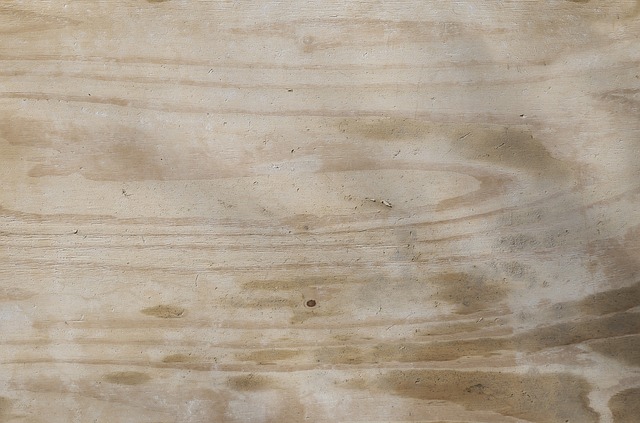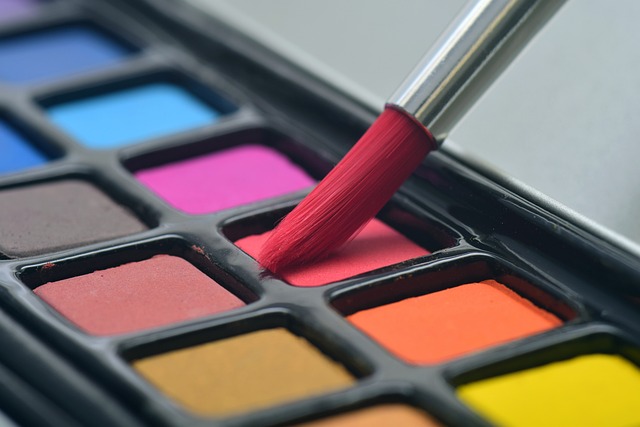Discover the truth about veneers and oral hygiene in our enlightening article. You might be surprised to learn whether brushing them is a must!
1. Understanding Veneers: A Brief Introduction to the World of Dental Veneers
Nowadays, dental veneers have become a popular solution for achieving a sparkling smile. These wafer-thin, custom-made shells are designed to cover the front surface of teeth to enhance their appearance. If you’re considering veneers, it’s important to understand the basics before diving into this transformative dental procedure.
One of the key benefits of veneers is their versatility. They can fix a range of cosmetic dental issues, including discoloration, chipped or misaligned teeth, and gaps between teeth. Veneers are typically made from porcelain or composite resin, both of which offer exceptional durability and a natural look. The procedure involves removing a small amount of enamel from the affected tooth and then securely bonding the veneer to its surface.
-
- Porcelain veneers are known for their stain-resistant properties, making them a great long-term option.
- Composite resin veneers, although less resistant to stains, are typically more affordable.
- The color of veneers can be carefully customized to match the surrounding teeth, providing a seamless result.
When properly maintained, veneers can last for many years, providing you with a beautiful, confident smile. It’s essential to
2. The Lifespan of Veneers: How Long Can You Expect Them to Last?
Veneers are a popular choice for those looking to improve the appearance of their teeth, but it’s important to understand their lifespan before committing to the treatment. While the specific lifespan of veneers can vary depending on various factors, here are some general guidelines to give you an idea of what to expect:
1. Proper care and maintenance: Taking care of your veneers is essential for their longevity. Ensure you follow a strict oral hygiene routine that includes regular brushing, flossing, and rinsing with an antiseptic mouthwash. Avoid biting on hard objects, such as ice or pen caps, which can damage the veneers. Additionally, wearing a mouthguard during activities like contact sports can help protect your veneers.
2. Quality of materials and placement: The lifespan of veneers can also depend on the quality of materials used during their fabrication and the expertise of the dentist placing them. High-quality porcelain veneers tend to last longer than composite veneers. It’s crucial to choose an experienced dentist who specializes in cosmetic dentistry and has a proven track record of successful veneer placements to ensure optimal results and durability.
3. Demystifying Veneer Maintenance: Do You Really Need to Brush Them?
Veneers are a fantastic way to achieve that perfect smile, but maintaining them is crucial for their longevity. Many patients wonder if brushing veneers is necessary, and the answer is a resounding yes! While veneers are resistant to staining and discoloration, they still require regular brushing to keep them clean and free from plaque buildup. Here are a few reasons why brushing your veneers is essential:
-
- Maintaining overall oral hygiene: Brushing your veneers ensures that your teeth, gums, and veneers are all equally clean. It helps prevent tooth decay, gum disease, and keeps your breath fresh.
- Preventing acid erosion: Brushing regularly helps remove any acid or food particles that may be sitting on your veneers. Acidic substances can contribute to veneer deterioration over time, so it’s crucial to keep them clean and protected.
- Preserving the natural appearance: Brushing your veneers eliminates any surface stains or debris that may dull their natural shine. This keeps your veneers looking dazzling and helps them blend seamlessly with your natural teeth.
Remember, when brushing your veneers, it’s essential to use a soft-bristled toothbrush and non-abrasive toothpaste. Brush gently in circular motions, paying extra attention to the edges of the veneers. Incorporate regular flossing and rinsing with an antiseptic mouthwash for optimal maintenance. By incorporating these habits into your oral care routine, you can enjoy the benefits of your veneers for years to come!
Proper oral hygiene is essential for maintaining the longevity and appearance of your veneers. While there is a common myth that brushing too vigorously or using a specific type of toothbrush can damage veneers, it is important to explore the truth behind this belief. With the right techniques and tools, brushing your teeth with veneers can effectively remove plaque and bacteria without causing any harm. Firstly, it is crucial to choose a soft-bristled toothbrush to minimize potential damage to your veneers. Soft bristles are gentle on the tooth enamel and won’t scratch the porcelain surface of your veneers. Additionally, using a non-abrasive toothpaste is recommended, as abrasive formulas can gradually wear away the composite material used in some veneers.
By following these proper oral hygiene practices, you can ensure the health and appearance of your veneers for years to come.
5. Why Brushing Veneers is Essential: Debunking Common Misconceptions
Brushing veneers is an essential part of maintaining their longevity and ensuring their visual appeal. Despite common misconceptions, brushing veneers is not detrimental to their surface. In fact, regular brushing not only helps to keep veneers clean but also prevents the buildup of plaque and bacteria that can lead to decay and gum disease.
Here are some key points to debunk the misconceptions surrounding brushing veneers:
-
- Veneers are durable: Veneers are made from strong and resistant materials such as porcelain or composite resin. Brushing them with a soft-bristled toothbrush and non-abrasive toothpaste poses no harm and effectively eliminates food particles, stains, and bacteria.
- Natural teeth require maintenance: Just like natural teeth, veneers also benefit from regular brushing. Brushing twice a day for at least two minutes with proper brushing techniques can help maintain their luster and prevent discoloration.
- Gum health matters: Brushing veneers is vital for maintaining healthy gums. Plaque and bacteria accumulation can lead to gum inflammation, which can compromise the longevity of veneers. Brushing, combined with daily flossing, ensures the health of your gums and supports the overall stability of veneers.
By debunking these misconceptions, it becomes clear that brushing veneers is indeed essential. It promotes the well-being of both the veneers themselves and the oral health surrounding them. Remember, a consistent and gentle oral hygiene routine will help your veneers shine bright for years to come!
6. The Dos and Don’ts of Brushing Veneers: Practical Tips for Maintaining a Sparkling Smile
When it comes to maintaining a dazzling smile with veneers, there are certain dos and don’ts that you should keep in mind. Following these practical tips will help you preserve the longevity and luster of your veneers, allowing you to confidently flaunt your pearly whites.
Do:
- Brush your veneers twice a day using a soft-bristled toothbrush and a non-abrasive toothpaste. This will help remove plaque and food particles, preventing stains and maintaining a pristine appearance.
- Floss daily to clean between your teeth and around your veneers. Glide the floss gently and avoid snapping it against your veneers, as this could cause damage or detachment.
- Use a mouthwash that is specifically designed for veneers or recommended by your dentist. This can help kill bacteria and freshen your breath without causing any harm to your veneers.
- Visit your dentist regularly for professional cleanings and check-ups. This allows your dentist to assess the condition of your veneers and address any issues before they become more severe.
Don’t:
- Use a toothbrush with hard bristles, as this can scratch or wear down the surface of your veneers. Opt for a soft-bristled brush that is gentle on both your natural teeth and your veneers.
- Apply excessive force while brushing your veneers, as this could lead to chipping or cracking. Instead, use gentle, circular motions to clean your teeth and veneers effectively.
- Consume highly pigmented foods and beverages, such as coffee, tea, red wine, or dark-colored sauces, excessively. These substances can stain your veneers over time, so moderation is key.
- Use your teeth as tools for opening packages or biting on hard objects, as this can cause veneer damage. Always reach for scissors or appropriate tools instead.
7. Optimal Dental Care for Veneers: A Comprehensive Guide to Protecting Your Investment
Protecting your investment in dental veneers is essential to maintaining their optimal condition and longevity. Here, we provide a comprehensive guide that will help you take the necessary steps to care for your veneers effectively and preserve their natural appearance.
1. Maintain good oral hygiene: Brush your teeth twice a day using a non-abrasive toothpaste and a soft-bristle toothbrush. Don’t forget to floss daily to remove plaque and food particles from hard-to-reach areas.
2. Avoid staining substances: Certain foods and beverages can stain your natural teeth, and they can also potentially stain your veneers. Limit your consumption of coffee, tea, red wine, and dark-colored sauces. If you do indulge in them occasionally, rinse your mouth with water afterwards to minimize any staining effects.
3. Steer clear of bad oral habits: Avoid biting your fingernails, chewing ice, or using your teeth as tools to open packages. These habits can chip or damage your veneers. It’s also advisable to wear a mouthguard during sports activities to protect your veneers from potential trauma.
When it comes to veneers, the importance of proper maintenance cannot be overstated. Brushing plays a key role in preserving the longevity and aesthetic appeal of veneers. But what exactly is the impact of brushing on veneers? Let’s dive into the facts:
1. Gentle Brushing is Crucial: Gentle brushing with a soft-bristled toothbrush is essential in preventing damage to veneers. Hard-bristled brushes can scratch the surface of veneers, leading to micro-abrasions that compromise their longevity and shine. Remember, a soft touch goes a long way!
2. The Power of Proper Technique: Utilizing the correct brushing technique is vital for maintaining veneer integrity. Brush at a 45-degree angle, using short, gentle strokes along the gumline and the edges of the veneers. Don’t forget to also brush the back of your teeth where veneers are present, as bacteria buildup in these areas can harm their durability.
9. Beyond Brushing: Additional Care Measures for Extending the Life of Your Veneers
When it comes to maintaining the longevity of your veneers, brushing is just the first step. There are several additional care measures you can take to ensure your veneers stay in excellent condition for years to come.
Avoid staining agents: Certain foods and beverages can leave behind stubborn stains on your veneers. To prevent discoloration, it’s important to limit your consumption of coffee, tea, red wine, and other highly pigmented substances. If you do indulge in these staining agents, be sure to rinse your mouth with water afterward to minimize their effects.
Use a non-abrasive toothpaste: While regular toothpaste is effective for cleaning natural teeth, it can be too abrasive for veneers. Opt for a non-abrasive toothpaste that is specifically formulated for use with veneers. These toothpastes are gentle on the veneer surface and will help prevent scratching or dulling of the porcelain.
10. Expert Recommendations: Professional Advice on Caring for your Veneers
When it comes to caring for your veneers, it’s always beneficial to seek expert recommendations from professionals in the field. These professionals have the knowledge and experience to provide valuable advice on how to maintain the longevity and appearance of your veneers. Here are some professional tips to help you care for your veneers:
- Brush and floss regularly: Although veneers are not subject to decay like natural teeth, it is still essential to maintain good oral hygiene. Brush your teeth at least twice a day with a soft-bristled toothbrush and use dental floss or interdental brushes to clean between your teeth and around the edges of your veneers.
- Avoid abrasive toothpaste and hard-bristled brushes: While you should maintain proper oral hygiene, it’s important to use gentle toothpaste and a soft-bristled brush. Abrasive toothpaste and hard-bristled brushes can scratch the surface of your veneers, leading to a dull appearance and potential damage.
- Minimize staining agents: Veneers are resistant to staining, but certain substances can still affect their appearance over time. Limit your consumption of highly pigmented foods and beverages like coffee, tea, red wine, and berries. If you do indulge in these, rinse your mouth with water afterward, or use a straw to minimize contact with your veneers.
Remember, expert advice is crucial when it comes to caring for your veneers. By following these professional recommendations, you can ensure that your veneers stay beautiful and maintain their integrity for years to come.
Conclusion
In conclusion, brushing veneers is indeed necessary for maintaining oral hygiene and keeping them in pristine condition. Remember, while veneers are stain-resistant, thorough cleaning is crucial to prevent plaque buildup and maintain their natural luster. By following proper dental care practices and consulting with your dentist regularly, you can enjoy a beautiful and long-lasting smile with your veneers.





